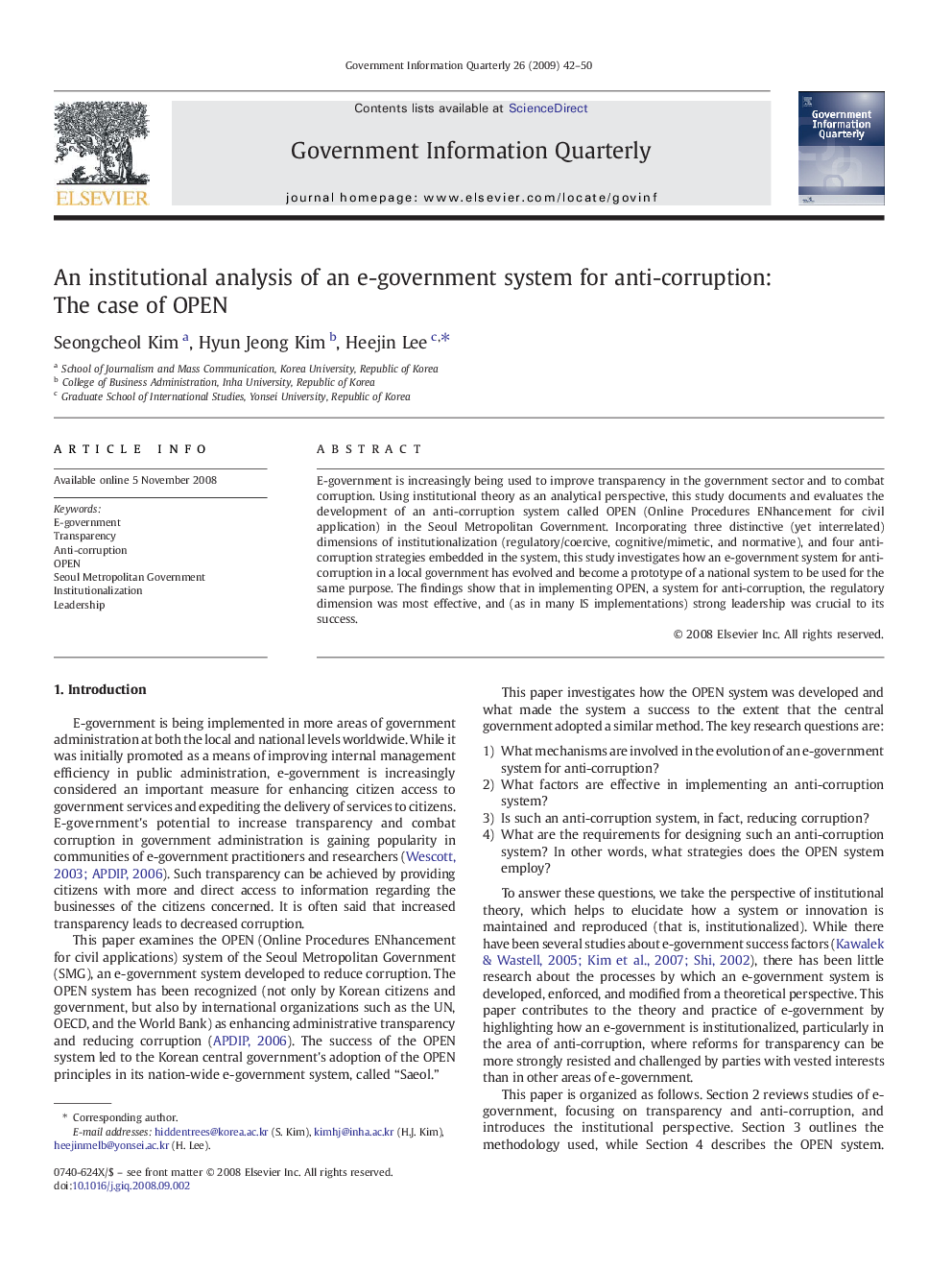| Article ID | Journal | Published Year | Pages | File Type |
|---|---|---|---|---|
| 1024782 | Government Information Quarterly | 2009 | 9 Pages |
E-government is increasingly being used to improve transparency in the government sector and to combat corruption. Using institutional theory as an analytical perspective, this study documents and evaluates the development of an anti-corruption system called OPEN (Online Procedures ENhancement for civil application) in the Seoul Metropolitan Government. Incorporating three distinctive (yet interrelated) dimensions of institutionalization (regulatory/coercive, cognitive/mimetic, and normative), and four anti-corruption strategies embedded in the system, this study investigates how an e-government system for anti-corruption in a local government has evolved and become a prototype of a national system to be used for the same purpose. The findings show that in implementing OPEN, a system for anti-corruption, the regulatory dimension was most effective, and (as in many IS implementations) strong leadership was crucial to its success.
